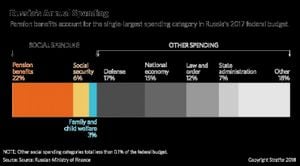TikTok, the viral social media platform known for its short videos, is taking significant legal steps against the Canadian government's recent decision to shut down its operations within the country. The company claims this shutdown could jeopardize hundreds of jobs and sever numerous contracts it holds with Canadian advertising clients, which are integral to its function.
The legal battle began when TikTok filed documents with the Federal Court in Vancouver on December 5, aiming to overturn the government’s order issued back in November following concerns over national security. Although Canadians can still access the app itself, the closure of TikTok’s Canadian offices raises questions about the future of its operations, as over 14 million users stand to be impacted.
A spokesperson for TikTok expressed the company's concerns, stating, "TikTok Canada provides hundreds of Canadians with well-paying jobs and contributes millions of dollars annually to the Canadian economy. Through the TikTok platform, Canadian businesses and content creators can reach a global audience of over one billion monthly users." This statement exemplifies TikTok's argument against the dissolution, highlighting its contributions to the local economy and the digital marketplace itself.
The order for TikTok to cease its Canadian operations stemmed from national security reviews carried out through the Investment Canada Act, which allows the government to investigate foreign investments potentially threatening national security. Industry Minister François-Philippe Champagne referenced these risks but did not specify what they entailed. TikTok contends the government failed to adequately engage with its team or provide clear reasoning for the order, describing it as "unreasonable" and driven by what they allege are "improper purposes."
According to TikTok’s court application, the minister’s reasoning behind the order is riddled with logical inconsistencies, stating, "The reasons for the order are unintelligible, fail to reveal a rational chain of analysis, and are rife with logical fallacies." The company emphasizes the economic damage the closure would cause, underscoring the belief there were less drastic alternatives available to address any national security concerns.
The situation is complicated by the nuanced relationship many social media platforms have with government oversight. The very nature of TikTok, which connects users worldwide and allows for rapid content sharing, puts it at the center of broader discussions about privacy and data security. Every action brings to light the tension between consumer demands for entertainment and government concerns over data privacy and security, particularly when foreign entities are involved.
Across the border, TikTok faces its own challenges with U.S. regulations. The app recently lost its appeal to halt legislation aimed at potentially banning it altogether due to similar national security concerns raised by U.S. lawmakers. TikTok's legal representatives continue to argue against these claims, maintaining the safety of user data and asserting their commitment to transparency.
Many content creators relying on TikTok platforms for income and outreach have expressed fears over the outcomes of both the Canadian and U.S. situations. They worry about the long-term viability of their channels and potential loss of audiences if operations were to be severely restricted or shut down. The turbulent grounds for TikTok's business operations bring to light the wider consequences for creators who depend heavily on the platform's ability to connect them with viewers.
The Federal Court's decision will be pivotal not only for TikTok but also for the political dynamics of Canadian relations with foreign tech companies. The scrutiny surrounding TikTok epitomizes the modern dilemma governments face as they navigate the integration of global technology within their national boundaries.
While waiting for the court's ruling, TikTok remains firm on its position and its commitment to its Canadian workforce and users. The company cites its collaborations with various Canadian government branches on matters related to online safety and cultural outreach as proof of its engagement within the local community.
TikTok's future hangs delicately between legal battles and the broader narrative of social media's role within society. The outcome may not just dictate the platform's operational capabilities but could also influence content creators' livelihoods and the general disposition toward foreign technology companies operating within North America.
For now, the situation continues to develop as both TikTok and the government of Canada gear up for what could become one of the most notable legal battles surrounding social media and technology regulation.



